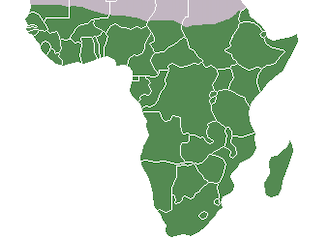
Sub-Saharan Africa. The geographical region of the African continent that lies south of the Sahara Desert. It encompasses 46 of Africa’s 54 countries and is characterized by diverse cultures, languages, economies, and ecosystems. The region is often contrasted with North Africa, which shares historical and cultural ties with the Middle East.
Geography and Climate
Sub-Saharan Africa covers a vast and diverse landscape, including savannas, rainforests, mountains, and deserts. The climate varies significantly across the region, from arid conditions in the Sahel to tropical rainforests in the Congo Basin. Major rivers such as the Nile, Niger, Congo, and Zambezi play crucial roles in the region’s ecosystems and economies.
Demographics and Culture
The region is home to over 1.1 billion people, with a high population growth rate. It is linguistically diverse, with thousands of languages spoken, including major language families such as Bantu, Nilotic, and Cushitic. Sub-Saharan Africa has rich cultural traditions, including music, dance, oral storytelling, and art, with strong influences from indigenous, Islamic, and colonial histories.
Economy and Development
The economies of Sub-Saharan Africa vary widely, with resource-rich countries such as Nigeria and South Africa playing leading roles in regional economic activities. Agriculture remains a significant sector, employing a large percentage of the population. The region has seen rapid urbanization and growth in sectors such as telecommunications, fintech, and renewable energy. However, economic challenges persist, including poverty, political instability, and inadequate infrastructure.
Health and Education
Sub-Saharan Africa faces significant public health challenges, including infectious diseases such as malaria, HIV/AIDS, and tuberculosis. Efforts from international organizations and governments have contributed to improvements in healthcare access and life expectancy. Education remains a priority, with increasing literacy rates and growing access to primary and secondary schooling, though disparities still exist between urban and rural areas.
Politics and Governance
Governance in Sub-Saharan Africa varies from stable democracies to authoritarian regimes. While many countries have made strides in democratic governance and human rights, challenges such as corruption, armed conflicts, and electoral disputes persist. Regional organizations like the African Union (AU) and the Economic Community of West African States (ECOWAS) play key roles in conflict resolution and economic cooperation.
Future Prospects
Sub-Saharan Africa is poised for significant transformation in the coming decades. With a youthful population, technological advancements, and growing investments in infrastructure and education, the region has the potential for substantial economic and social development. Addressing governance issues, climate change, and equitable growth will be crucial for sustainable progress.